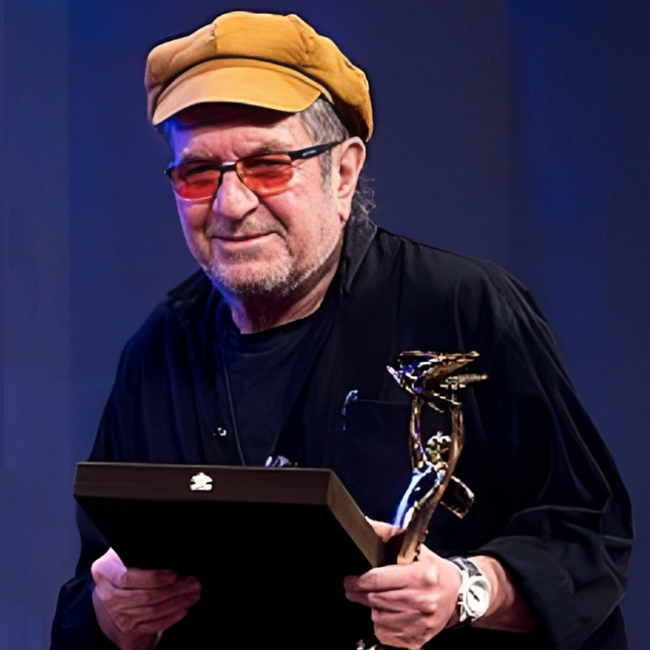

Dariush Mehrjui (December 9, 1939 – October 14, 2023) was a renowned screenwriter and film director. He is known as one of the founders of the Iranian New Wave Cinema in the late 1960s and is acclaimed for adapting Western literary works for the Iranian audience.
Although Mehrjui’s debut film, Almās 33 (Diamond 33, 1967), was not a major success, his subsequent films Gāv (The Cow,1968) and Dāyarah-yi mīnā (The Cycle, 1975) brought him national and international recognition. Following the 1979 Revolution, he temporarily left Iran, returned years later and continued his filmmaking career in the mid-1980s. Some of his notable films include Ijārah’nishīn’hā (The Tenants, 1987) and Hamoun (1990). Through the latter film, Mehrjui created the unforgettable cinematic character of Hamoun, who stands as the most iconic figure in the history of Iranian cinema. Mehrjui won several international awards for his cinematic works, notably from the San Sebastian, Berlin, and Venice Film Festivals, as well as the Chicago International Film Festival. He was also awarded the French Order of Arts and Letters in 2014.
His keen focus on the lives of Iranian women is evident in his trilogy Sara (1993), Pari (1995), Leila (1996). Throughout his career, his style and interests have undergone a notable evolution. Initially exploring poverty and rural life in his earlier works, he later shifted his focus to urban settings, centering on the dynamics of the middle class.
In 2022, Mehrjui openly opposed the censorship imposed by the Islamic Republic, specifically regarding the ban on his film La Minor (2022). In the following year, a tragic and mysterious incident unfolded: both he and his wife were discovered, fatally stabbed, at their home in Karaj. His untimely death left his latest documentary unfinished, in which he sought to blame the Iranian regime for the mandatory hijab.
